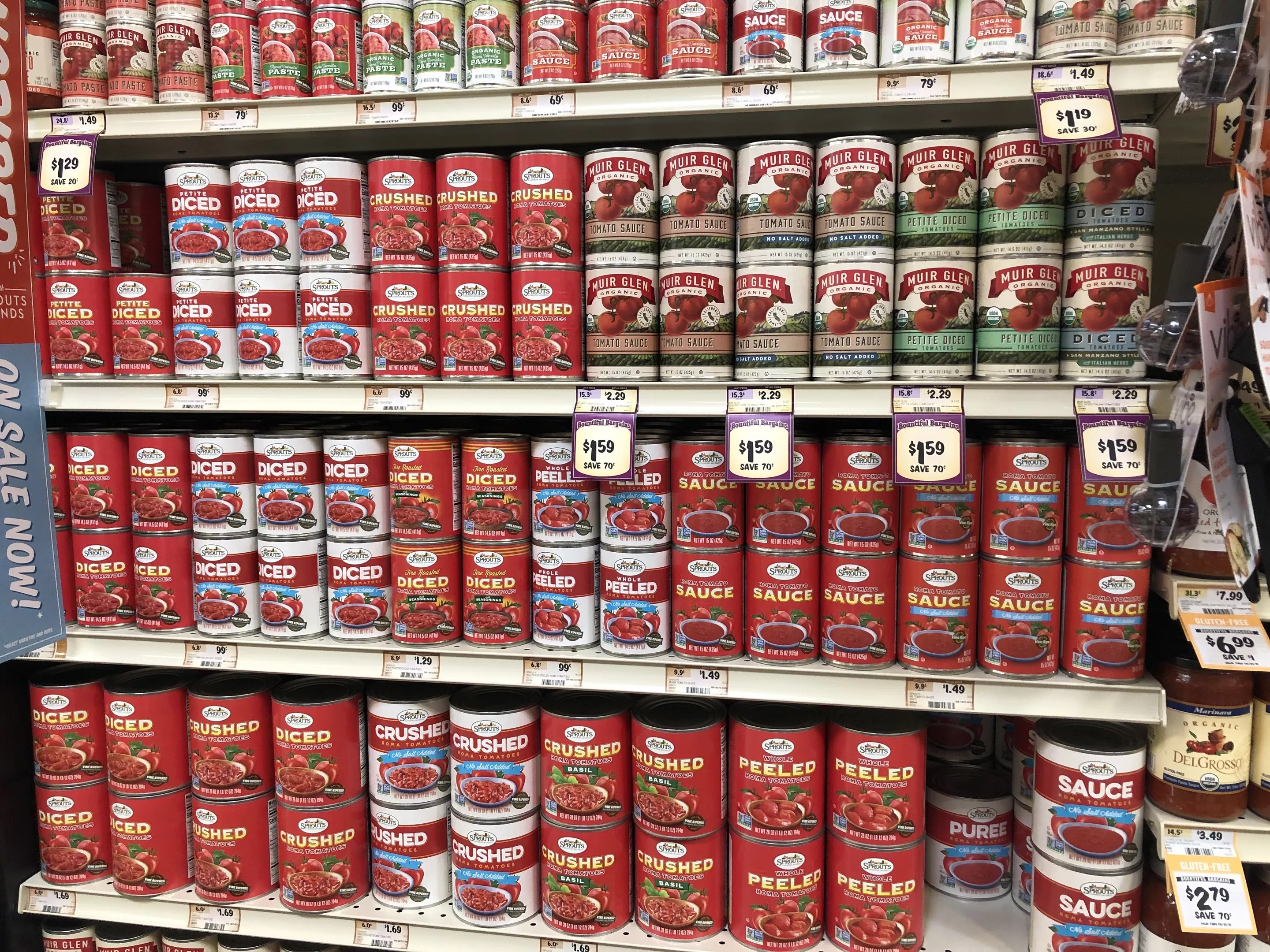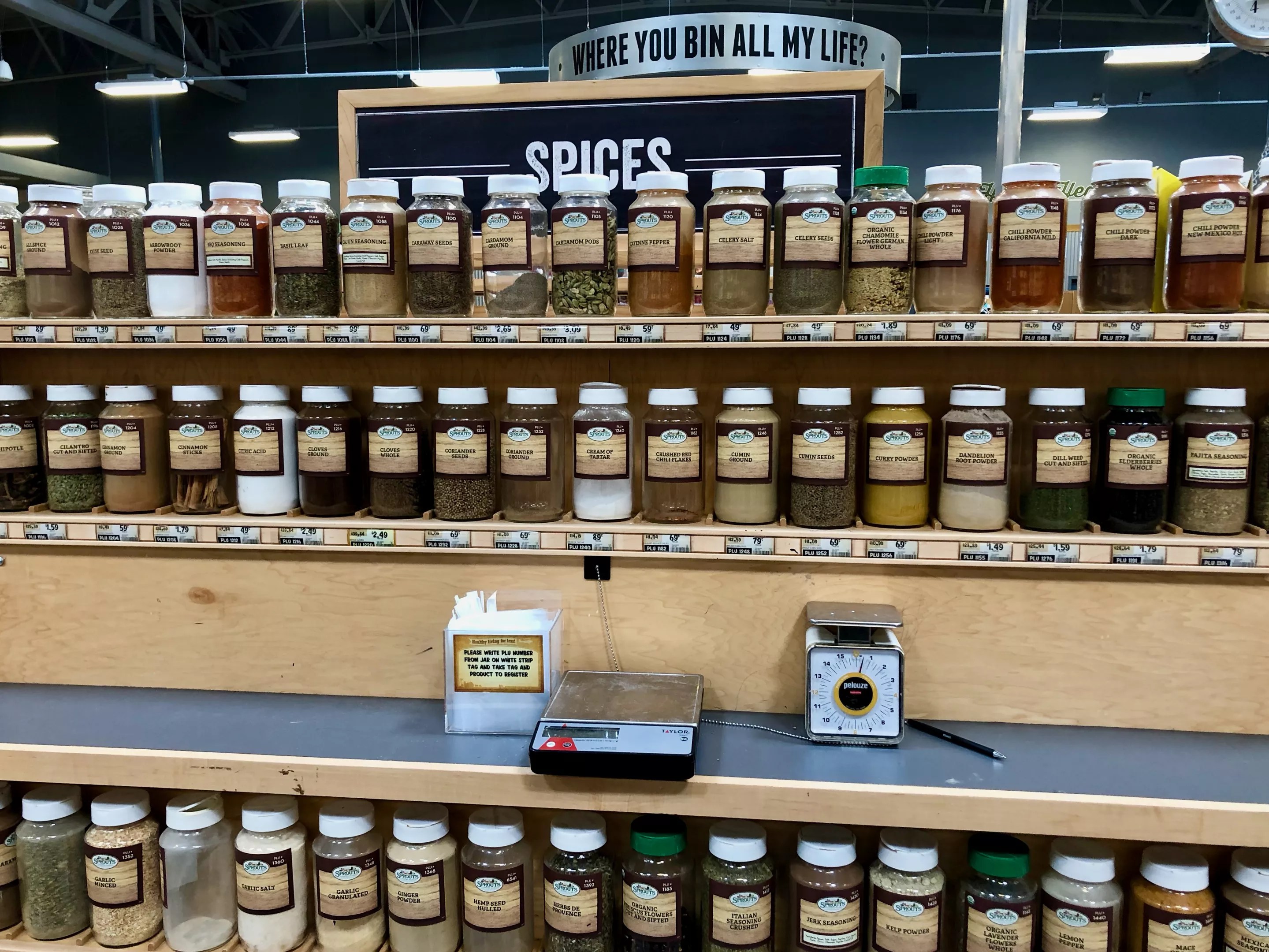
nrd/Unsplash

Audio By Carbonatix
COVID-19 has many of us working from home for the foreseeable future, with kids in the house till at least April 10. Dining at restaurants is long gone, and takeout expenses can start to build up. Having meals and snacks available at home is now essential. The key to this? A well-stocked pantry and fridge.
Stop hoarding toilet paper or hand sanitizer. Instead, make sure you’re well-supplied with these staples.
Refrigerator Staples
Vegetables
Sharon Brack, a functional nutritionist at AZ Integrative Medicine & Spa in Scottsdale says, “Instead of heading to processed foods, start in the produce aisle. Right now, try to get any produce that is available. The goal is to collect vegetables and fruits in different colors.” She recommends buying purple cabbage, “because it has more digestive enzymes to process foods.” The upside of fresh vegetable and fruits is the option to cut and freeze them. Similarly, Jamie Miller, a registered dietician of The Village Health Club & Spas, suggests buying tomatoes, carrots, onions, and sweet potatoes. These items have a longer shelf life.

Apples and oranges last longer and are more durable.
Lauren Cusimano
Fruits
Apples and oranges are good options because they last longer and are more durable. If you opt for canned fruits, Miller recommends buying the variety dipped in natural juices without any added sugar. Brack suggests stocking up on a variety of fresh berries that are available as well.
Eggs
Eggs are always a good protein source, and they seem to be back in stock. Brack recommends buying eggs labeled vegetarian-fed and cage-free. During this pandemic, she recommends those who are living with the elderly or family members with underlying conditions to use gloves and wash eggs in some water, or even rinse them in vinegar. “It could kill bacteria mingling with the egg,” she says.
Milk
Opt for whole milk if it is available. “You don’t have to drink as much,” Brack says, noting that dairy is a fantastic source for protein. “I’m recommending purchasing whole-milk products, even with string cheese, because it carries more protein than the alternatives.” If whole milk isn’t available, Miller recommends good shelf staples, like almond or cashew milk. Stick to unsweetened if possible.
Frozen Foods
For meat options, frozen turkey or chicken burgers are a viable option, according to Miller. Also, frozen fish or shrimp are good ways to get more protein into your diet. Frozen vegetables, like bell peppers, spinach, and broccoli are good ways to dress up a bean bowl, burritos, or pasta. For smoothies, mango, peaches, and berries are healthy alternatives.
Cheese
Brack wants people to shop for block cheese rather than the shredded option. “Shredded cheese has added ingredients that aren’t necessarily beneficial.” Harder cheeses always have a longer shelf life than soft cheeses. Also, “harder cheeses are less acidic as a whole for your body to be able to process,” she says. Miller adds that cottage cheese has a long shelf life and is a good option as well.
Yogurt
For people who don’t eat meat, yogurt is a possible protein substitute, according to Miller. It lasts a couple of weeks. Brack adds “people should stay away from Yoplait because of the added sugars” and opt for Greek yogurt.

Gravitate toward beans and lentils, as well as tomato sauces.
Lauren Cusimano
Pantry Staples
“Pantry staples do not mean stocking up on just rice and beans. Choose from all four food groups -carbohydrates, proteins, fruits, and vegetables, and fats for well-rounded meals,” Miller says. A meal can be canned beans, rice, frozen bell peppers, and onions, topped with shrimp and salsa to make a burrito bowl. For breakfast, a smoothie with frozen fruit, protein powder, peanut butter, and almond milk is a healthy, flavorful choice.
Canned Foods
For canned foods, Brack suggests looking at the label for low-sodium options. “Being able to watch salt is important, especially now, for people who have high blood pressure,” she says. Gravitate toward beans and lentils, as well as tomato sauces. Brack encourages buying canned fish and emphasizes, “You should look for wild caught” on the label. Options and sustainable products are available at Trader Joe’s and Sprouts. Miller also suggests looking for organic options. Most price points between the conventional and organic are about the same. Canned salmon and tuna are good proteins to have on hand.
Flour
People are gravitating toward baking to cope with the pandemic. Miller recommends using a high-fiber, whole-wheat flour. Or, a good alternative is almond flour, which is lower in carbohydrates and higher in healthy fat. She also recommends buying oats because they’re good for baking and breakfast foods.
Protein Powder
Miller recommends purchasing protein powder because it is useful to mix into smoothies. Many companies offer low-sugar or carbohydrate options.
Nuts and Nut Butter
Brack says to stock up on cashews, almonds, and walnuts. She recommends eating a variety of nuts because they are “a balance of mono and unsaturated fats.” As for butters, Miller says, “Peanut butter and almond butter are staple ingredients to have in your pantry.”
Seeds
Chia, flax, and hemp seeds are a source of healthy nutrients, and you can integrate them in various meals like with a salad or smoothie.
Bread
A whole-grain bread is what people should toss in their cart, but, “if that isn’t available, try a whole-grain tortilla,” says Miller.
Popcorn
This may seem like an unexpected item in the pantry, but according to Miller, popcorn is a “high-volume, high-fiber option.” Try to look for air-popped options if they are available.

Behold, the spices section at Sprouts.
Lauren Cusimano
Oils, Vinegars, and Spices
Olive oils and vinegar are go-tos for salad dressings. Have a steady staple of spices available to make certain, “Your food tastes appetizing and adds variety to your diet,” Miller says.
Pasta
Miller is shocked to see how much pasta is flying off the shelves. “There is nothing wrong with pasta, but you have to make sure you are getting a complete meal and not just eating carbs,” she says. Try to gravitate toward wheat-based, bean-based, or gluten-free varieties.
Special Beverages
Since people might be feeling anxious, there is a likely need to move toward sweets. Miller recommends sipping on a flavored sparkling beverage or a tea. “It is a better option, especially when you aren’t feeling hungry, and just need a little something sweet,” she says.
Dessert
Many people aren’t going to be able to resist dessert. “If you reach for chocolate, opt for dark chocolate and pair it with popcorn or berries,” Miller says. Freeze-dried fruit is also a flavorful option because it adds texture and has a long shelf life. “Applesauce makes a handy dessert, too.”
One Last Thing
As this pandemic continues, people need to be “attentive to their fiber intake and water,” Miller says. “Try to feel full and satisfied and have your digestion in a good spot.”